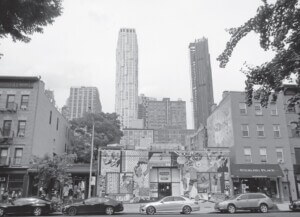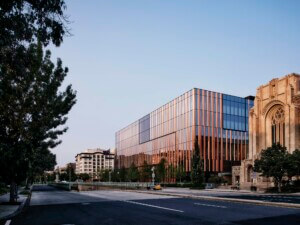The U.S. Supreme Court has overturned a bill that allows people experiencing homelessness to sleep in public spaces. The decision enables police officers to punish people “camping” on public property. It has been called the U.S. Supreme Court’s “biggest decision on homelessness in decades.”
According to Trump appointee Justice Neil Gorsuch, the decision also extends to protesters. “It makes no difference whether the defendant is a person experiencing homelessness, on vacation, or a student who abandons his dorm to camp out in protest on the lawn of a municipal building,” Gorsuch said.
The vote was made during a series of controversial regulatory cuts on June 28. The ruling applies to California, Oregon, Nevada, and six other West Coast states; it changes a current law in the 9th Circuit Court of Appeals. The decision quickly drew ire from the Southern Poverty Law Center (SPLC), Oregon Law Center, and National Homelessness Law Center’s Housing Not Handcuffs coalition, among other human rights groups.
“Homelessness is a humanitarian crisis, not a moral failing,” said Kirsten Anderson, SPLC deputy legal director for economic justice. “The Supreme Court held that it is a crime to be homeless—at a moment in which housing is unaffordable for half the people in the country—proving that it continues to be out of touch with the American public. As a country, we must stop arresting, fining and jailing people for not having housing, and instead address the issues that are causing housing to be unaffordable.”
Kirsten Anderson noted that the new policy direction recalls “vagrancy laws” under Jim Crow. Vagrancy laws, Anderson said, were tools of economic and racial subjugation in the Deep South that gave police officers permission to arrest people of color for simply standing on public property. Vagrancy Laws were also used to create Sundown Towns, places that allowed “Whites Only within City Limits after Dark.”
The new anti-homeless law approved by the Supreme Court will create “New Sundown Towns,” according to reporting in The New Republic. Southern Poverty Law Center has since submitted an amicus brief to the Supreme Court that contains testimonies by plaintiffs experiencing homelessness who oppose the recent decision.
The saga dates back to 2018 when the trial Johnson vs. Grants Pass began. That year, the city of Grants Pass, Oregon, brought a case against Ed Johnson of the Oregon Law Center to the U.S. Supreme Court.
Grants Pass’s population is 40,000 people. City officials there said that this vote will help police officers remove homeless people from its streets. But the vote extends to multiple cities, big and small, in nine total states.
The vote on June 28 was split 6-3 along ideological lines. Those dissenting were Justices Sonia Sotomayor, Elena Kagan, and Ketanji Brown Jackson. It overturned a lower court ruling that said punishing people who sleep outside is “cruel and unusual” under the Eighth Amendment.
Justice Gorsuch said “Homelessness is complex. Its causes are many,” but argued that cities should be allowed to decide how they handle the homelessness crisis, similar to how abortion has been left for states to decide.
Justice Sotomayor dissented because she said sleep is a biological necessity, and that this new rule presents people with “an impossible choice—either stay awake or be arrested.”
Oregon Law Center’s Ed Johnson said this vote will worsen the problem because arresting people will make it harder for them to get housing if they have criminal records. “It’s sort of the bare minimum in what a just society should expect, is that you’re not going to punish someone for something they have no ability to control,” Johnson said.
Update: This article was amended on July 3 to include Justice Gorsuch’s comment regarding student protests on municipal property.











